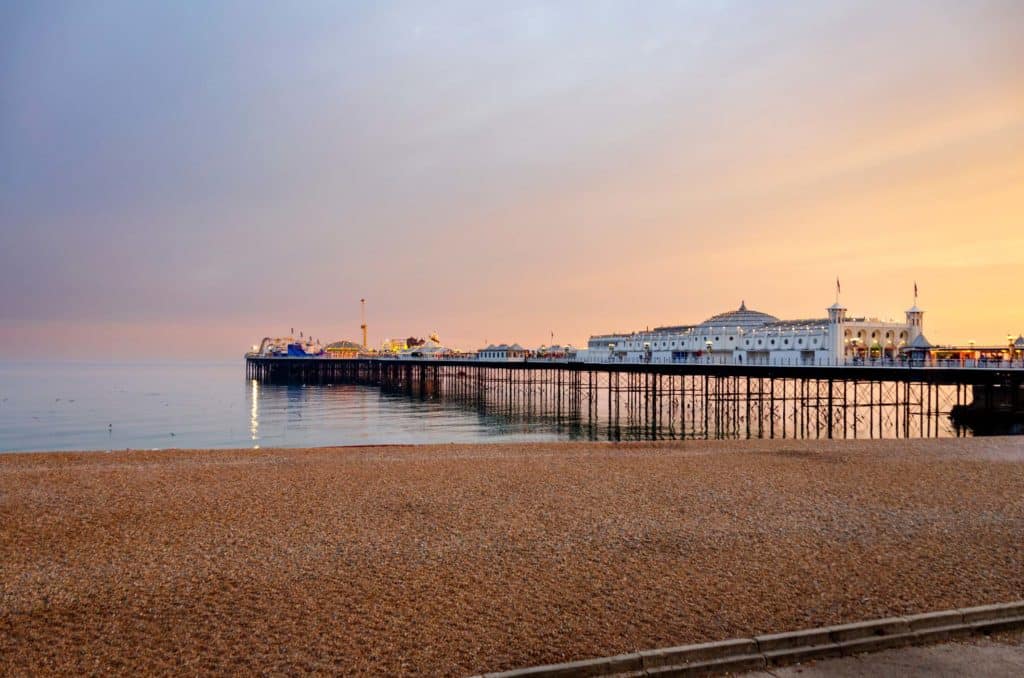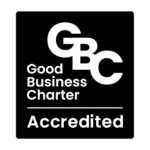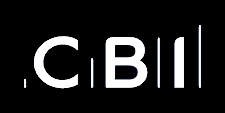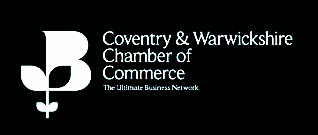
After a week to recover and catch up on my inbox I thought I would revisit everything I’d learned during an intense couple of days at the October 2024 BrightonSEO conference. After an event like this it is all too easy to get straight back to being busy with work and not take the time to plan how to put all my new learnings into action so I am recapping the event and key takeaways, as well as providing an overview of what the conference is like for other Marketing Professionals who are looking to develop their SEO skills and would like to attend in future.
I arrived at The Brighton Centre bright and early just before 8.30am on Thursday. Not only was it my first time attending BrightonSEO but also my first time in Brighton. The sun was shining and I had a lovely five minute walk along the seafront to the venue from my hotel. There was a queue when I arrived, but once the doors opened they were very quick getting everyone in, as lots of people had printed their entrance badges before arriving. I wasn’t that organised having only come back from holiday a couple of days before the conference, but I still got in and registered in a couple of minutes.
I had a brief look around the exhibition area and picked up some freebies in exchange for a chat about some SEO tools. My new pen and notebook would come in very handy over the next two days.
Then I headed up to the First time attendees meet and greet. This involved a short history of the conference from its early days in a room above a pub, to the international and online events that take place today. We also got some tips on how to get the most out of the event including to set the following goals:
I learned they have a buddy system where you can link up with another person with similar schedules if you are a solo attendee. They showed some example itineraries for different roles to help choose between the many sessions happening at once. If you’re an in-house SEO they had a schedule for that, if you’re a PPC marketer they had a schedule for that and if you are an agency owner or director they had a schedule for that.
As a perpetual planner I had already created my itinerary using the schedule creator on the BrightonSEO website, so I new exactly where I was going next.
Auditorium sessions: Sessions in the main auditoriums are an hour long split into three 20 minute talks on a related topic. Brighton SEO recommends you stay for all talks in a session as they often relate to each other and to avoid disrupting speakers.
Panels: Four industry professionals discuss a number of talking points, these are really good as you often get contrasting views on a topic or added context from different perspectives.
Masterclasses: Limited to 30 people a masterclass allows one speaker to go in-depth on a topic for a full hour. Due to the small numbers they often allow audience participation.
My first session was a panel hosted by Myriam Jessier with Mel Barfield, Itasoha Akhibi and Julie Farley. They all shared some of their least favourite trends in online user experience as well as some things we can be doing to improve user experience on our websites and apps.
Loads of incredible insights here on how to automate content auditing with AI and machine learning. In particular Lazarina Stoy’s talk “How to automate your content audit with the help of machine learning” revealed lots of ways to automate basic content auditing tasks such as identifying user intent and classifying related content which on a large site could take several hours. I’ve already downloaded a couple of the Google Sheets templates she shared to test these techniques for myself.
After a break for lunch I headed to another interesting panel session, with loads of great ideas on how to make analytics reporting more engaging through storytelling and understanding your stakeholders motivations. I’m looking forward to trying out some of these tips in upcoming presentations.
AI was once again the main topic of conversation in the next session with talks from Michal Suski and Marina Cataldo touching on some of the topics I have written about recently myself about how to use AI to create content effectively and without harming your search rankings. The talks highlighted some useful tools for humanising AI content and reiterating where AI is helpful in the copywriting process and where it is less useful. AI Optimisation and Content briefing = good, content personalisation and creativity = Not so good. The key point to remember is that when publishing AI content it is important to always ask whether this content will be helpful for the audience.
The third talk in the session was from Louis Evans where he controversially urged everyone to stop writing blogs! The tension in the room was palpable when he introduced the topic. He backed up his shock statement with a valid and important point that blogs can become unfocused and lack strategy. Instead, by structuring your content to maximise visibility for commercial keywords, by building out supporting content that funnels content to key product/service pages, you can rank for much more relevant keywords and increase conversions.
With the final session of the day about to start, the tiredness was kicking in. Luckily several exhibitors had brought coffee machines and cake and I was only too happy to discuss their products for a few minutes in exchange for a sugar and caffeine boost.
This session focused on keyword analysis and related well to what I’d learned in the Content Auditing session earlier in the morning. A good case was made for using Python to automate SEO tasks such as analysing data from search results, such as ‘People Also Asked’ questions.
Though the speaker sessions were over BrightonSEO was not done for the day with loads of networking events taking place around the city. I went to the drinks reception which included retro games consoles, table football and arts and crafts. I cashed in a free drinks voucher and chatted to a bunch of SEOs who had travelled to the conference from around the world. One of the things everyone was saying was how good the masterclasses were so I made a tweak to my schedule to make sure I made it to one the next day.
From there I made a flying visit to the afterparty before grabbing fish and chips on the way back to my hotel to bring an action-packed day one to a close.
If like me you’re more of a morning person than a night owl there are early networking events too, so I got myself up and down to the beach for a 7.30am 5k run. Thankfully the beautiful weather had continued from yesterday and a group of about 15 of us took a gentle run along the seafront to blow the cobwebs away ready for another day of SEO insights.
The first talk of the day from Luca Tagliaferro was about the EU ‘Digital Markets Act’ and how this is countering Google’s monopolisation of more and more industries by providing their own services directly within Google search. Examples of this would be Google flights and hotel bookings. Google are now required to show more competitors within search results and I learned you can contest search results you think are unfair directly to the EU.
Following several recommendations I made sure I got to the Client Retainer growth masterclass early to get a spot before it filled up. It lived up to expectations with plenty of golden nuggets to impart back to the withdigital team as a whole.
After lunch I went to the Analytics session which started off with a talk from Kiera Monaghan on Matomo analytics, which is a privacy focused alternative to Google Analytics that we have used for a number of clients who are concerned about Google’s storage of personally identifiable information (PII) and use of cookies for tracking. Matomo doesn’t use cookies and allows you to host all the analytics data yourself which makes it much easier to track user behaviour and still comply with GDPR and other data protection legislation. If this sounds like something you would like to explore for your website get in touch with us. We currently have an offer available of 50% off analytics reporting for 3 months.
I finally managed to make it to the ice cream stall in the main auditorium and grab myself a salted caramel oat milk ice cream cone before the penultimate session started.
The first of the three talks was from Itasoha Akhibi about “The relevance of UX for conversion and monetisation”. She provided some compelling statistics showing the importance of providing a good User Experience, including:
The second talk looked at how principles from behavioural sciences can improve website performance, in particular the MINDSPACE framework that features nine factors that drive behaviour.
Thirdly we heard some advanced tips for testing site speed that go beyond using Google Lighthouse to use real user data from website log files. This way you can review more than average speed and look at the slowest percentiles of users, who they are and whether any key audiences are being impacted.
Google’s Search Advocate John Mueller and Swiss SEO Consultant Daniela Leitner took us on an entertaining look back over changes to Search over the past year or two, from an unprecedented number of updates, the Reddit takeover of search and of course the proliferation of AI content. John Mueller highlighted some recent feature releases in Google Search Console such as ‘recommendations’ and a robots.txt report. There were a few hints as to what might be coming soon, such as changes to Structured Data formats.
The resounding message as we departed the conference was not to believe that ‘SEO is dead’ as social media so often likes to claim. Though the ways we search is changing, the desire for new information, products and services still needs to be satisfied and the companies that are able to position themselves to stand out wherever customers are searching will continue to thrive. Even if it’s not in Google!
And there concludes my time at BrightonSEO. Maybe I’ll see you there in 2025.
If you have more questions about SEO or need help getting more traffic to your website contact withdigital today.




